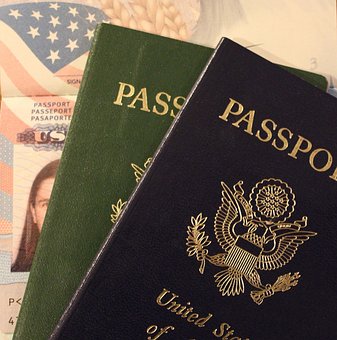In recent years, there have been significant changes in visa and immigration laws and regulations in different countries around the world. These changes have been driven by a variety of factors, including economic, political, and social considerations. In this article, we will take a closer look at some of the latest developments in visa and immigration laws in different countries and how they may affect individuals seeking to travel or relocate to these places.
United Kingdom:
The United Kingdom has undergone significant changes in its visa and immigration policies in recent years. In particular, the government has implemented a new points-based immigration system, which prioritizes highly skilled workers over low-skilled workers. Under this system, individuals seeking to work in the UK must first obtain a job offer from an approved employer and meet certain salary and skill level requirements. The government has also introduced new rules for international students, including the ability to stay in the UK for up to two years after graduation to find work.
European Union:
In the wake of Brexit, the European Union has implemented new visa and immigration policies for UK citizens seeking to travel or relocate to EU member states. Under these new rules, UK citizens are now subject to the same visa requirements as other non-EU citizens. This means that they may need to obtain a visa before travelling to an EU member state and may be subject to additional checks at border crossings. Additionally, UK citizens seeking to work or study in the EU may need to obtain a work or study visa before doing so.
United States:
The United States has also undergone significant changes in its visa and immigration policies in recent years. In particular, the Trump administration implemented a number of measures aimed at restricting immigration to the US, including a travel ban on citizens of several predominantly Muslim countries and a crackdown on undocumented immigrants. The Biden administration has since reversed many of these policies and has taken steps to create a more welcoming environment for immigrants and refugees.
Canada:
Canada is known for its relatively open immigration policies, and this trend has continued in recent years. The Canadian government has introduced new programs aimed at attracting highly skilled workers and entrepreneurs, including the Global Talent Stream and the Startup Visa Program. Additionally, Canada has increased its quotas for refugees and has taken steps to make the refugee application process more streamlined and efficient.

Australia:
Australia is another country that has traditionally had relatively open immigration policies. However, in recent years, the government has implemented a number of measures aimed at reducing immigration levels. This includes changes to the skilled migration program and the introduction of new requirements for permanent residency, such as a higher level of English language proficiency.
New Zealand:
New Zealand has also undergone significant changes in its visa and immigration policies in recent years. In particular, the government has introduced new measures aimed at attracting highly skilled workers and entrepreneurs, including the Global Impact Visa and the Entrepreneur Work Visa. Additionally, New Zealand has increased its quotas for refugees and has taken steps to make the refugee application process more streamlined and efficient.
The latest developments in visa and immigration laws and regulations in different countries reflect a complex mix of economic, political, and social considerations. While some countries have become more open to immigration in recent years, others have implemented measures aimed at reducing immigration levels.
Additionally, the Covid-19 pandemic has had a significant impact on travel and immigration, with many countries implementing new restrictions and requirements for travelers. As such, it is important for individuals seeking to travel or relocate to another country to stay up-to-date on the latest developments in visa and immigration policies and to seek the advice of a qualified immigration lawyer or consultant.
It is also worth noting that immigration policies are subject to change, and what is true today may not be true tomorrow. As such, it is important to be prepared for potential changes and to have a contingency plan in place. For example, if you are planning to move to a particular country for work or study, it may be wise to explore alternative options in case your visa application is denied or new restrictions are imposed.
Another important consideration is the potential impact of visa and immigration policies on families and communities. Immigration policies can have far-reaching effects on individuals and their loved ones, and it is important to consider these factors when making decisions about travel or relocation. For example, if you are planning to move to a new country with your family, you may need to consider the impact of visa restrictions on your spouse or children.
Finally, it is important to remember that visa and immigration policies are not the only factors to consider when moving to a new country. There are many other considerations, such as language, culture, and cost of living, that may also be important. As such, it is important to do your research and to seek the advice of professionals who can help you make informed decisions about your move.

The latest developments in visa and immigration laws and regulations in different countries reflect a complex mix of economic, political, and social considerations. While some countries have become more open to immigration in recent years, others have implemented measures aimed at reducing immigration levels. The Covid-19 pandemic has also had a significant impact on travel and immigration, with many countries implementing new restrictions and requirements for travelers. As such, it is important to stay up-to-date on the latest developments in visa and immigration policies and to seek the advice of a qualified immigration lawyer or consultant.
Furthermore, it is important to note that visa and immigration policies can have a significant impact on the economy of a country. Immigration can bring in highly skilled workers and entrepreneurs, which can help to drive innovation and economic growth. On the other hand, if immigration levels are too high, it can put a strain on public services and lead to social tensions. As such, it is important for governments to strike a balance between allowing immigration and protecting the interests of their citizens.
It is also worth noting that visa and immigration policies can be influenced by a variety of factors, including public opinion, political ideology, and international relations. For example, a government may implement stricter immigration policies in response to public concerns about security or job competition. Alternatively, a government may adopt more open immigration policies as a way to attract foreign investment or to build stronger ties with other countries.
One trend that has emerged in recent years is the use of technology to make the visa and immigration process more efficient and secure. Many countries now use electronic visa systems, which allow travelers to apply for visas online and receive them electronically. This can help to reduce processing times and make the application process more convenient for travelers. Additionally, some countries are using biometric technology, such as facial recognition and fingerprint scanning, to enhance border security and prevent fraud.
In conclusion
The latest developments in visa and immigration laws and regulations in different countries reflect a complex mix of economic, political, and social considerations. While some countries have become more open to immigration in recent years, others have implemented measures aimed at reducing immigration levels. The Covid-19 pandemic has also had a significant impact on travel and immigration, with many countries implementing new restrictions and requirements for travelers.
As such, it is important to stay up-to-date on the latest developments in visa and immigration policies and to seek the advice of a qualified immigration lawyer or consultant. Additionally, it is important to consider the potential impact of visa and immigration policies on families and communities, as well as the broader economic and political implications of these policies.











